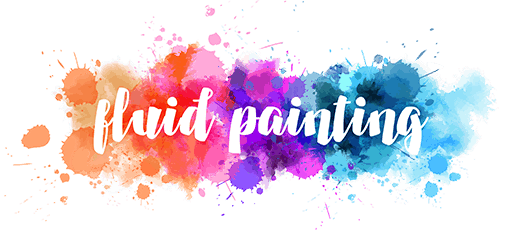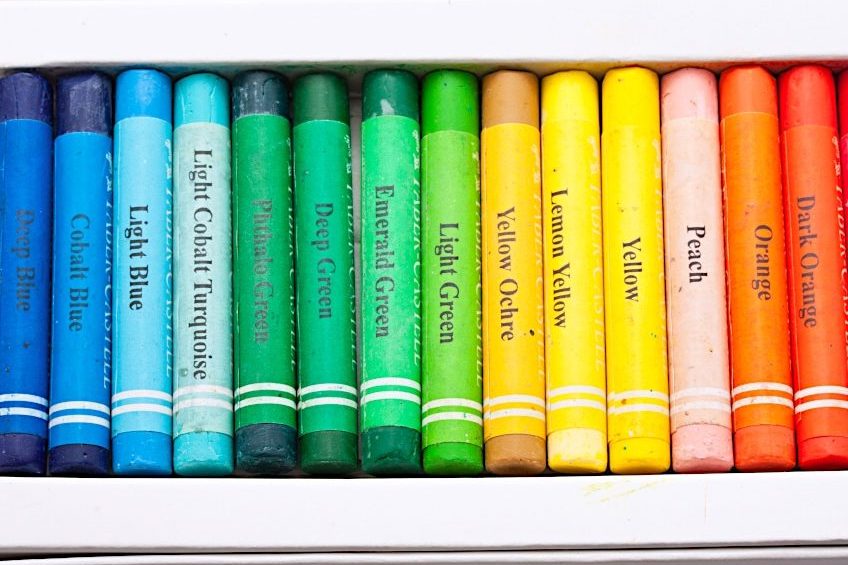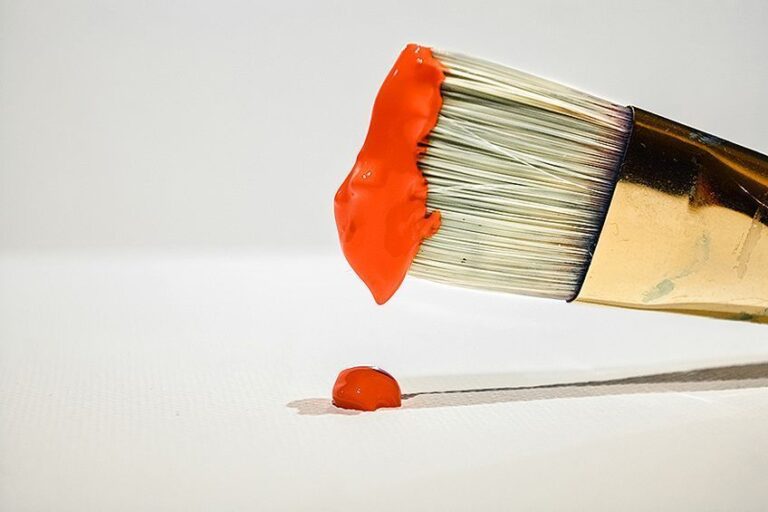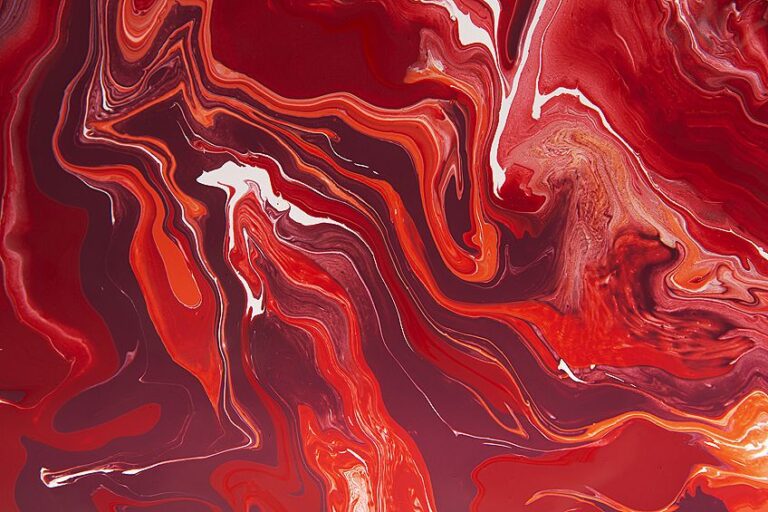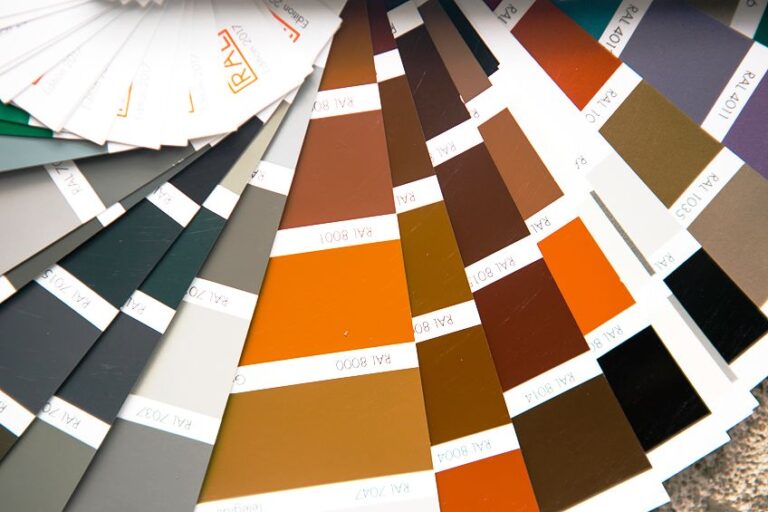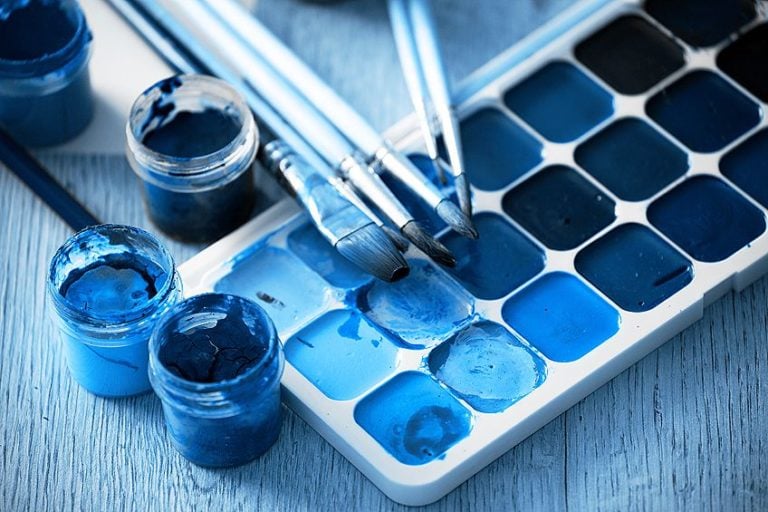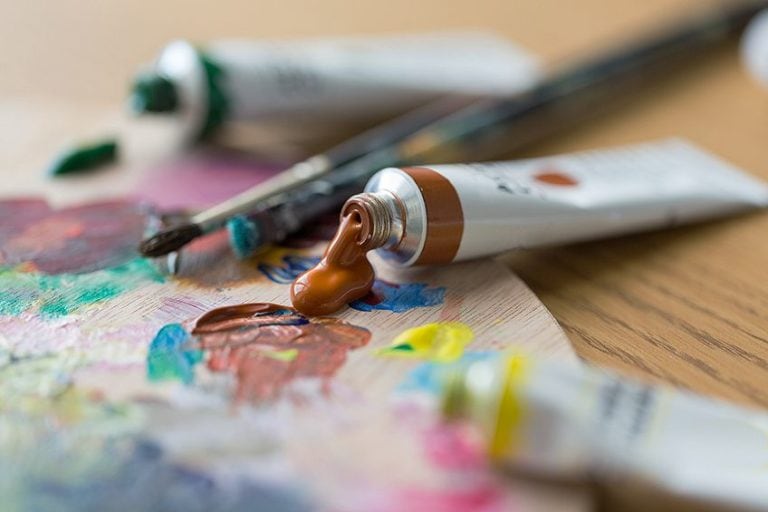Unique Color Names – Unusual and Interesting Color Facts
This post may contain affiliate links. We may earn a small commission from purchases made through them, at no additional cost to you.
Everywhere we look, we see unique colors. Our world is in fact a colorful place, and we are surrounded by color. From the blue sky to the green trees, and even our painted homes. There are countless colors in the world that we are unaware of. Most of us only know the regular colors we were taught about, like red, yellow, and blue. What we may not know, however, there is more than one shade of most colors. Those are the ones with unique color names.
Table of Contents
- 1 What Is Color Theory?
- 2 Different Colors That We See
- 3 Does Your Favorite Color Say Anything About You?
- 4 Color Names
- 4.1 Cool Color Names
- 4.2 Rare Color Names
- 4.2.1 Amaranth
- 4.2.2 Falu
- 4.2.3 Vermillion
- 4.2.4 Sarcoline
- 4.2.5 Eburnean
- 4.2.6 Coquelicot
- 4.2.7 Gamboge
- 4.2.8 Burlywood
- 4.2.9 Wenge
- 4.2.10 Aureolin
- 4.2.11 Mikado
- 4.2.12 Fulvous
- 4.2.13 Celadon
- 4.2.14 Smaragdine
- 4.2.15 Xanadu
- 4.2.16 Glaucous
- 4.2.17 Skobeloff
- 4.2.18 Viridian
- 4.2.19 Feldgrau
- 4.2.20 Mountbatten Pink
- 4.2.21 Phlox
- 5 Frequently Asked Questions
What Is Color Theory?
In simple terms, color theory is a set of guidelines and rules that is used by designers and artists in order to communicate with the user by attracting a color scheme in visual interfaces. When picking the best, and unique colors, designers will make use of a color wheel or chart, and do extensive research about how the colors will affect the audience.
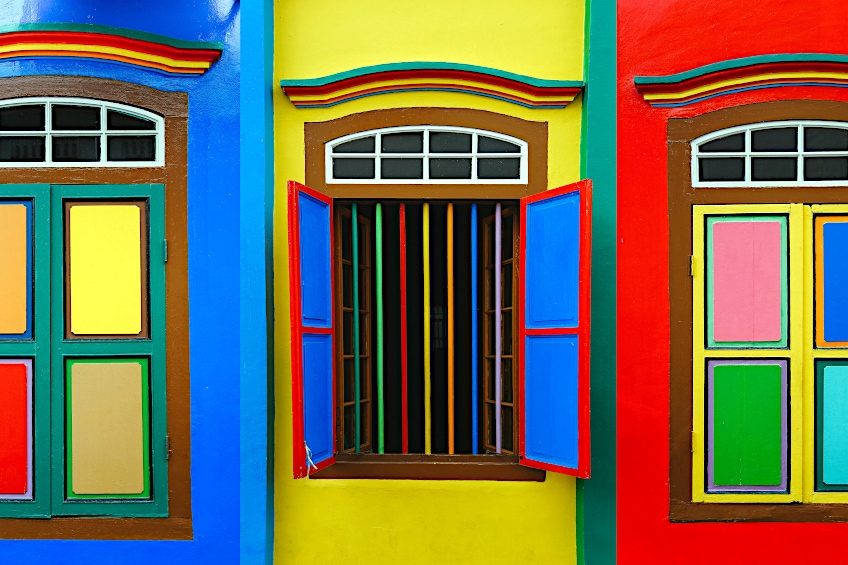
Primary Colors
We have been taught that primary colors consist of three colors, secondary colors also have three colors, and tertiary colors have six. The primary colors are made up of red, yellow, and blue. Secondary colors are orange, green, and violet. Tertiary colors include a mix of red-orange, yellow-orange, yellow-green, blue-green, blue-violet, and red-violet.
| Shade | Hex Color Code | RGB Value | CMYK Value (%) | Color |
| Red-Orange | #ff5349 | 255, 83, 73 | 0, 67, 71, 0 | |
| Yellow-Orange | #ffae42 | 255, 174, 66 | 0, 32, 74, 0 | |
| Yellow-Green | #9acd32 | 154, 205, 50 | 25, 0, 76, 20 | |
| Blue-Green | #0d98ba | 13, 152, 186 | 93, 18, 0, 27 | |
| Blue-Violet | #324ab2 | 50, 74, 178 | 72, 58, 0, 30 | |
| Red-Violet | #9e0168 | 158, 1, 104 | 0, 99, 34, 38 |
Primary colors are called this because we are able to use them to make other colors. When mixing yellow and red together, we will get orange as a result. When we mix red and white together, we will get pink as a result. This is something with which you can experiment and play around to see what colors you can make.
This is a useful trick for painters especially. It is a cheat code for when you do not have the color you need.
Color Hex Codes
What is a color hex code? A hexadecimal or hex code is a base 16 system that is used to make binary representation simpler. A base 16 system has numbers from zero to 15, this means that two-digit decimal number (10, 11, 12, 13, 14, and 15) has to be represented by a single number to exist in this system.
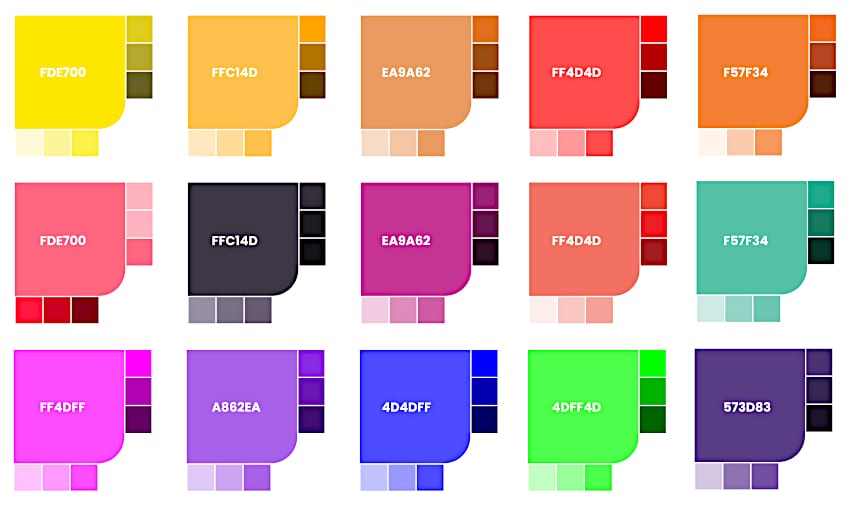
All colors that we know, and also don’t yet know about, are made up of these color hex codes. These codes contain values that will tell the display, or screen how much of a particular color to present. The values are actually a specific code that shows color values from 0 to 255. A hex digit will include any of the following 16 digits: 0, 1, 2, 3, 4, 5, 6, 7, 8, 9, A, B, C, D, E, and F. Each hex digit will show a 4-bit binary sequence.
Different Colors That We See
The world is made up of many different unique colors, all of which have their own unique color names. Some colors may be more prominent and appealing than others. Don’t you just think it is quite amazing how we are able to see seven different colors in a rainbow? Colors often symbolize different things. We also associate colors with emotions, this is a psychological thing.
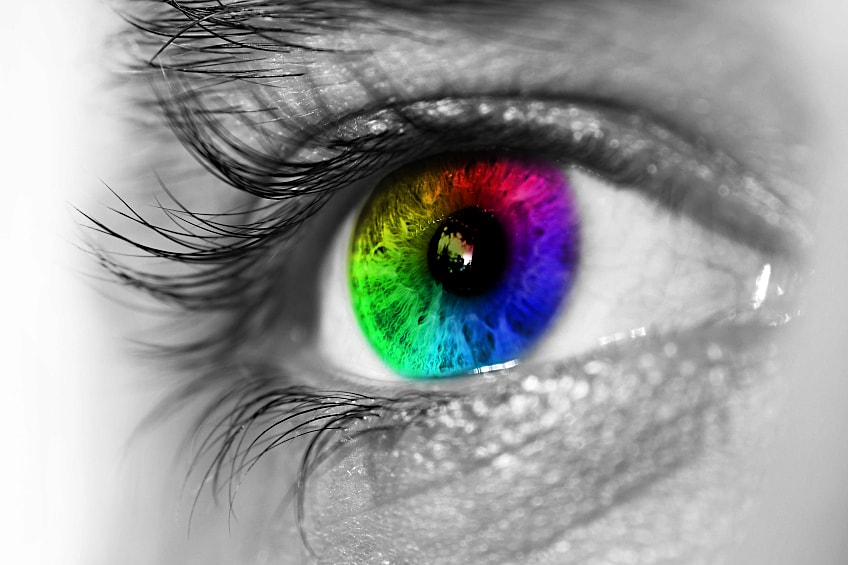
When we see color on a screen, it is made up of an RGB (red, green, and blue) color model or system. The screen makes use of red, green, and blue light to come up with the colors we see. These three colors will be combined at different levels. Here is an idea of some colors and their other unique color names, as well as their color hex codes, and also RGB value.
Yellows
Yellow is a primary color, meaning we can use the color yellow to make or add to other colors, but we cannot make any yellow pigment from other colors. To some of us, yellow is just yellow. But as we may have noticed, there are quite a few shades of this color. Some of the unique color names for other shades of yellow include daffodil, canary, flaxen, medallion, dijon, dandelion, and a few others.
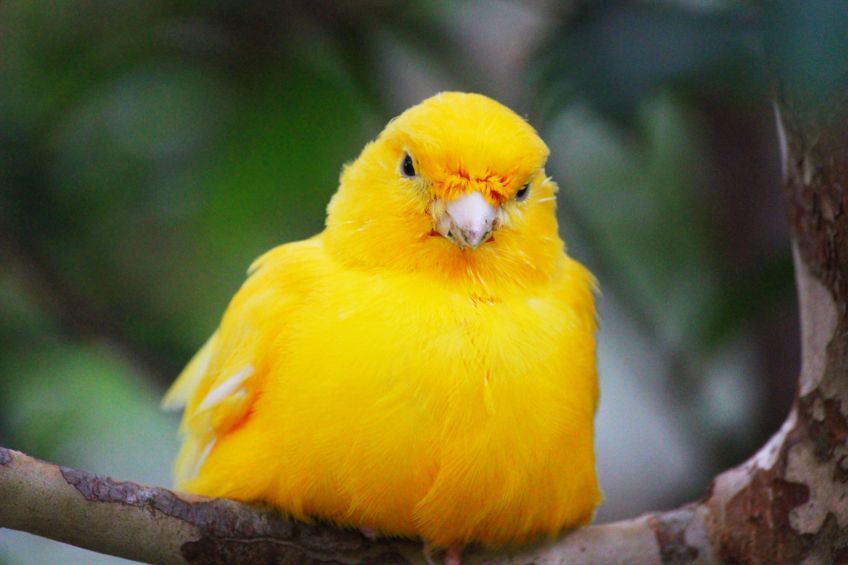
Although yellow is a primary color, in the RGB color model, it is a secondary color. In order to make true yellow, we need to combine red and green light that comes through on the screen. Red and green will be fully displayed, while blue is off. Below are the hex color codes and RGB values of the mentioned shades of yellow.
| Shade | Hex Color Code | RGB Value | CMYK Value (%) | Color |
| Canary | #ffed5f | 255, 237, 95 | 0, 7, 63, 0 | |
| Daffodil | #e28d00 | 255, 255, 49 | 0, 0, 80.78, 0 | |
| Dandelion | #fcd93b | 252, 217, 59 | 0, 24, 100, 4 | |
| Dijon | #97754c | 151, 117, 76 | 0, 23, 50, 41 | |
| Flaxen | #fbecc9 | 251, 236, 201 | 0, 6, 20, 2 | |
| Medallion | #c3a679 | 195, 166, 121 | 0, 15, 38, 24 | |
| Yellow | #ffff00 | 255, 255, 0 | 0, 0, 100, 0 |
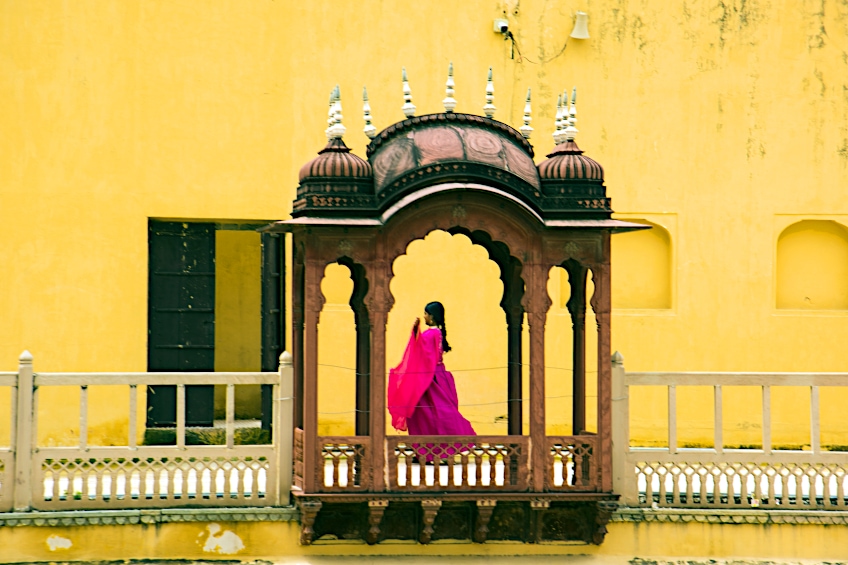
Reds
Red is often used as an alert color because of how bright it is, it will quickly grab your attention. Red often symbolizes things like life, love, courage, war, health, and even war. Red is also a primary color, so we can make use of it to add to or mix with other colors.
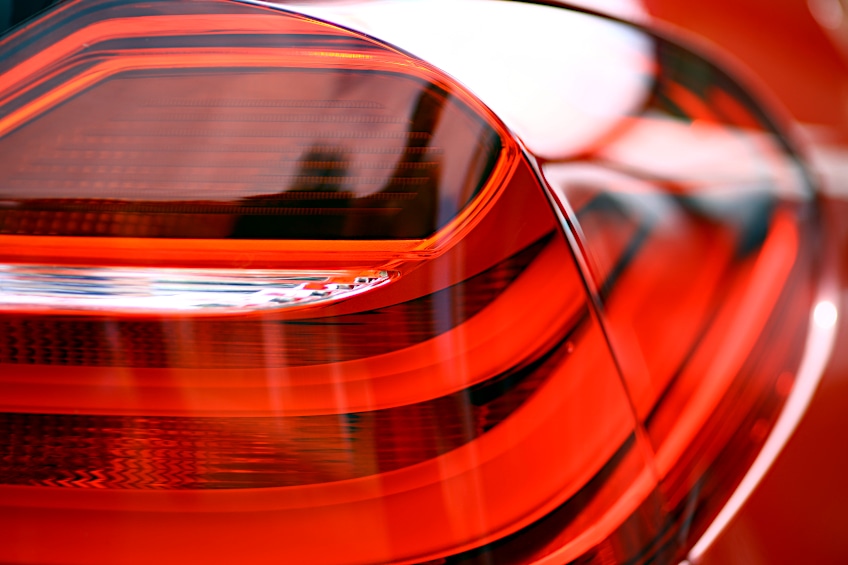
Red has quite a few shades as well, some of which have unique color names. Some of these names include; crimson, mahogany, sangria, and even Merlot. Below are the hex color codes and RGB values of the mentioned shades of red.
| Shade | Hex Color Code | RGB Value | CMYK Value (%) | Color |
| Crimson | #dc143c | 220, 20, 60 | 0, 100, 63, 31 | |
| Mahogany | #c04000 | 192, 64, 0 | 0, 67, 100, 25 | |
| Merlot | #7f171f | 127, 23, 31 | 0, 54, 37, 57 | |
| Red | #ff0000 | 255, 0, 0 | 0, 100, 100, 0 | |
| Sangria | #92000a | 164, 0, 10 | 0, 64, 54, 60 |
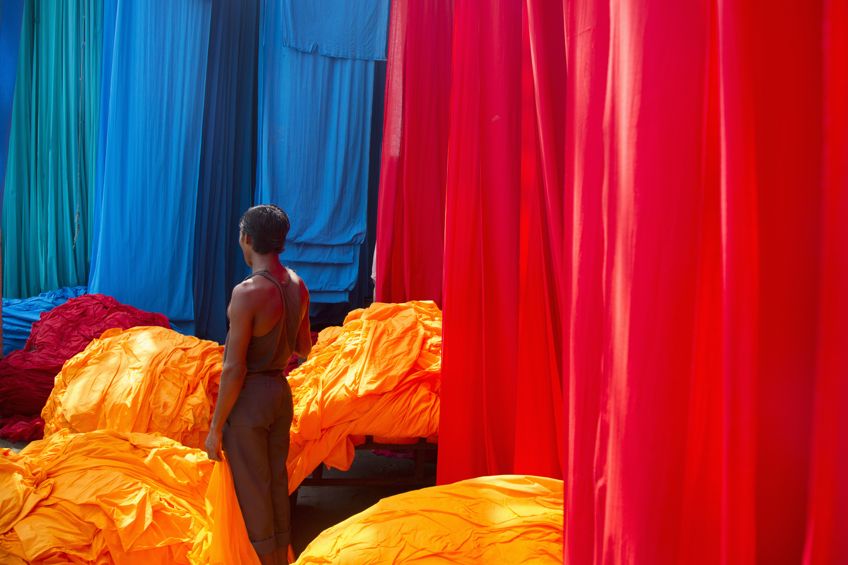
Greens
The color green is known to express something new, or growth. Green is often associated with nature and natural habitats as well. If you go outside and look around, you will see that most parts of a plant are green.
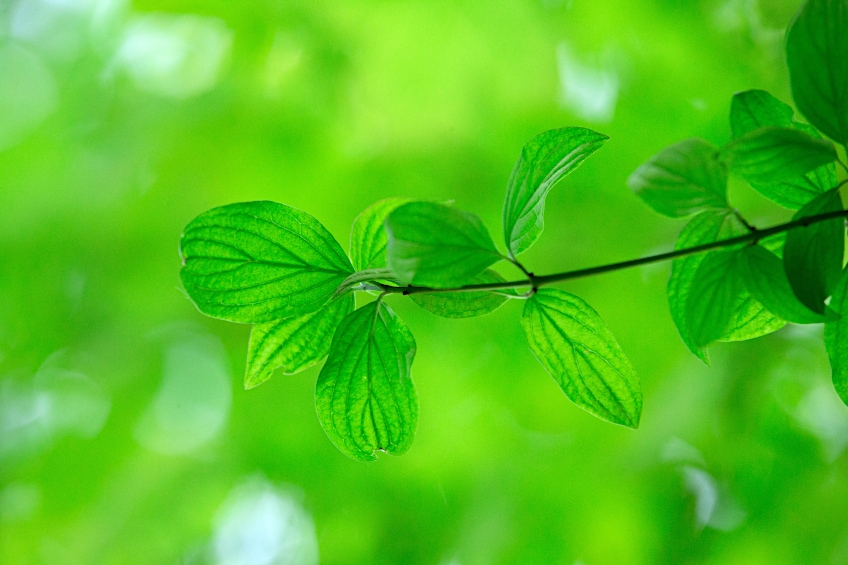
There are a few different green colors, including unique color names such as chartreuse, juniper, parakeet, sage, and shamrock. These are different shades or hues of green. Below are the hex color codes and RGB values of the mentioned shades of green.
| Shade | Hex Color Code | RGB Value | CMYK Value (%) | Color |
| Chartreuse | #dfff00 | 223, 255, 0 | 10, 0, 70, 0 | |
| Green | #008000 | 0, 128, 0 | 100, 0, 100, 0 | |
| Juniper | #2c664f | 44, 102, 79 | 38, 0, 21, 47 | |
| Parakeet | #1aa36d | 26, 163, 109 | 84, 0, 33, 36 | |
| Sage | #8a9a5b | 138, 154, 91 | 10, 0, 20, 30 | |
| Shamrock | #009e60 | 0, 128, 128 | 100, 0, 39.24, 38.04 |
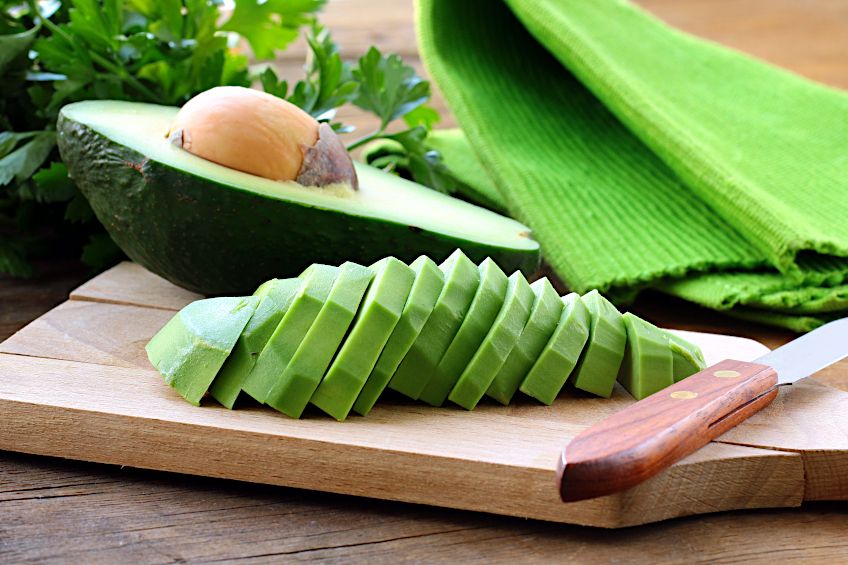
Blues
The color blue can be associated with calmness. When we look at the sky and the ocean, we often feel a sense of calmness. Blue could also represent sadness in a way.

Some of the more unique color names for blue include indigo, teal, azure, cobalt, cerulean, Aegean, and sapphire. These are just some of them. Below are the hex color codes and RGB values of the mentioned shades of blue.
| Shade | Hex Color Code | RGB Value | CMYK Value (%) | Color |
| Aegean | #4e6e81 | 78, 110, 129 | 40, 15, 0, 49 | |
| Azure | #0080ff | 0, 128, 255 | 80, 50, 0, 0 | |
| Blue | #0000ff | 0, 0, 255 | 100, 100, 0, 0 | |
| Cerulean | #2a52be | 42, 82, 190 | 78, 57, 0, 26 | |
| Cobalt | #0047ab | 0, 71, 171 | 100, 58.48, 0, 32.94 | |
| Indigo | #3f0fb7 | 63, 15, 183 | 80, 80, 0, 0 | |
| Sapphire | #0f52ba | 15, 82, 186 | 92, 56, 0, 27 | |
| Teal | #008080 | 0, 128, 128 | 80, 20, 40, 20 |
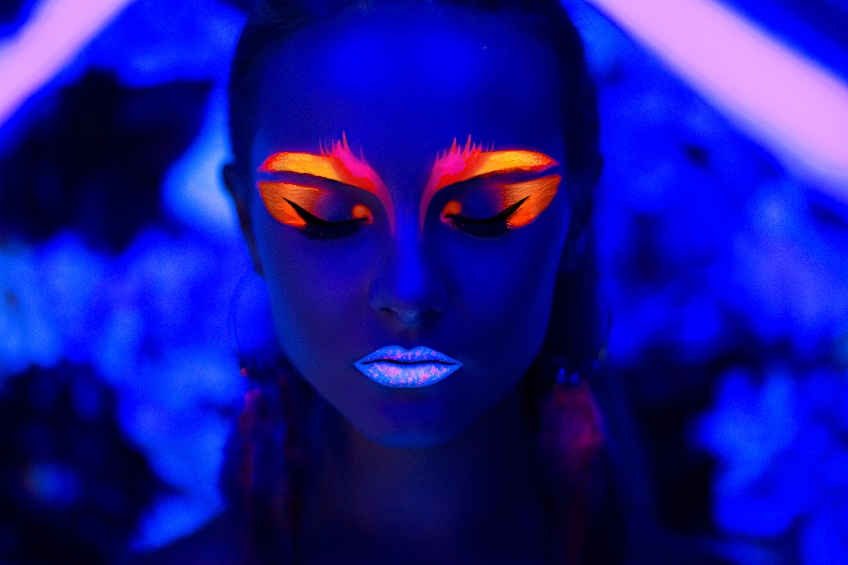
Oranges
Have you ever thought about where the word orange comes from? The word is believed to come from the old French term for fruit, pomme d’orange. The word actually has many different origins. However, when we hear this word, the color is not the only thing that we think about. As we know, orange is also a fruit with the same name, given for having its orange color.
Orange is a highly energetic color associated with happiness and joy.

There are a few unique color names for orange, these include tangerine, pumpkin, ochre, bronze, cider, goldenrod, marigold, clay, cantaloupe, ginger, tiger, and even sandstone. Below are the hex color codes and RGB values of the mentioned shades of orange.
| Shade | Hex Color Code | RGB Value | CMYK Value (%) | Color |
| Bronze | #cd7f32 | 205, 127, 50 | 0, 38, 76, 20 | |
| Cantaloupe | #ffd479 | 255, 212, 121 | 0, 17, 53, 0 | |
| Cider | #da995f | 218, 153, 95 | 0, 30, 56, 15 | |
| Clay | #b66a50 | 182, 106, 80 | 0, 42, 56, 29 | |
| Ginger | #b26366 | 178, 99, 54 | 0, 44, 70, 30 | |
| Goldenrod | #daa520 | 218, 165, 32 | 0, 24, 85, 15 | |
| Marigold | #fcc006 | 252, 192, 6 | 0, 24, 98, 1 | |
| Ochre | #cc7722 | 204, 119, 34 | 0, 42, 83, 20 | |
| Orange | #ffa500 | 255, 165, 0 | 0, 35, 100, 0 | |
| Pumpkin | #ff7518 | 255, 117, 24 | 0, 54.12, 90.59, 0 | |
| Sandstone | #bfa674 | 191, 166, 116 | 0, 13, 39, 25 | |
| Tangerine | #f28500 | 242, 133, 0 | 0, 45.04, 100, 5.10 | |
| Tiger | #f96815 | 249, 104, 21 | 0, 58, 92, 2 |

Blacks
Black is the color we get as a result of the absence of light. It often symbolizes darkness, and because black is an achromatic color, it does not have any hue. The color black is used to describe the opposite of white and has also been a symbol of solemnity, as well as authority.
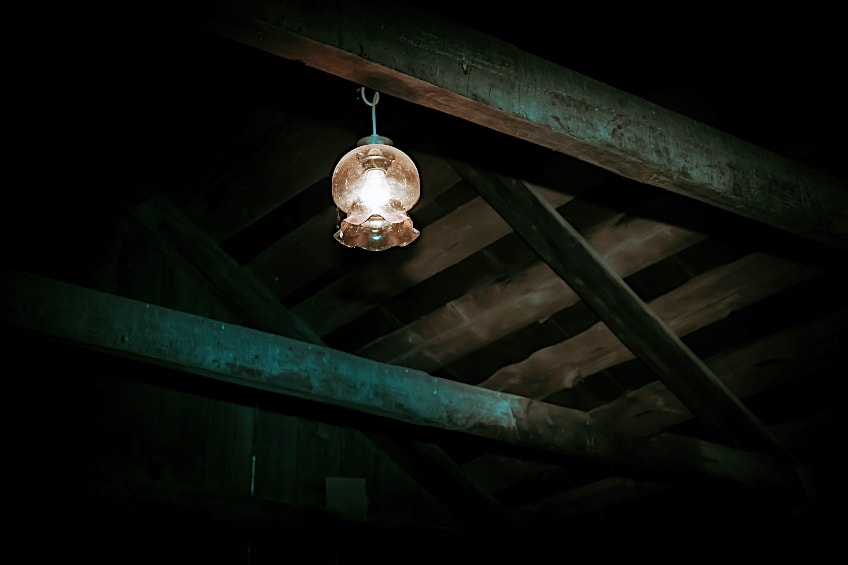
It was one of the first colors that artists used in Neolithic cave paintings. It first became the color of mourning in the Roman Empire as it was associated with death. Some of the unique color names for black include raven, charcoal, onyx, soot, obsidian, ebony, midnight, and a few more.
Below are the hex color codes and RGB values of the mentioned shades of black.
| Shade | Color Hex Code | RGB Value | CMYK Value (%) | Color |
| Black | #000000 | 0, 0, 0 | 80, 70, 70, 100 | |
| Charcoal | #6e6969 | 110, 105, 105 | 80, 60, 50, 40 | |
| Ebony | #555d50 | 85, 93, 80 | 91, 0, 14, 64 | |
| Midnight | #00040d | 0, 4, 13 | 100, 69, 0, 95 | |
| Obsidian | #445055 | 68, 80, 85 | 20, 6, 0, 67 | |
| Onyx | #3a3a3a | 58, 58, 58 | 0, 0, 0, 77 | |
| Raven | #1c1e1e | 28, 30, 30 | 7, 0, 0, 88 | |
| Soot | #0f0d0d | 15, 13, 13 | 0, 14, 14, 94 |
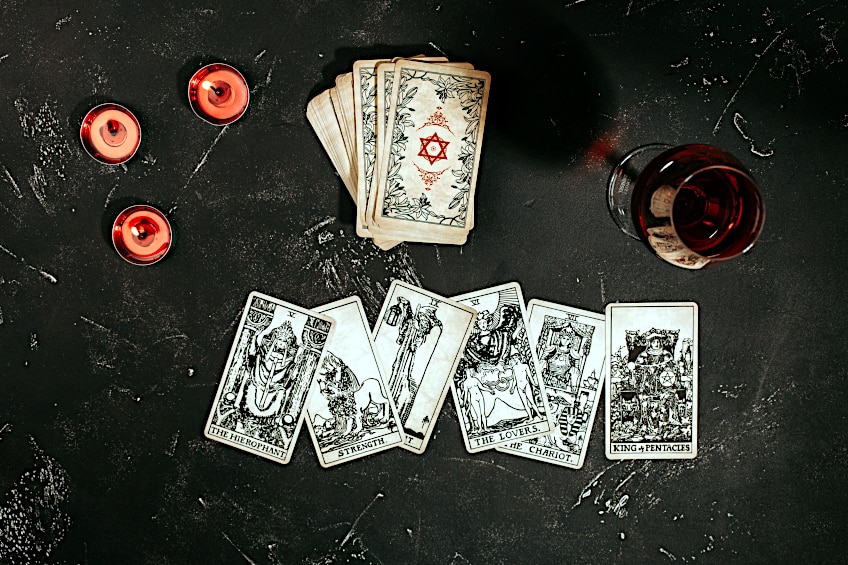
Whites
White is often associated with innocence, purity, cleanliness, simplicity, emptiness, or blankness. The color white can create a sense of space, artists and designers would use this color to make a room appear larger than it actually is.

White has been considered powerful in feng shui, this is a way of organizing the environment around you to instill a sense of harmony. This color is often used in the fashion industry as well. A great example of this would be a wedding dress. We would have noticed that a bride will wear white on her wedding day, this was to symbolize her purity and virginity.
White is also worn in the summertime to help keep you cool.

Some of the unique color names for other shades of white would be ivory, pearl, chiffon, alabaster, cotton, cream, parchment, powder, frost, lace, bone, porcelain, and even salt. Below are the hex color codes and RGB values of the mentioned shades of white.
| Shade | Hex Color Code | RGB Value | CMYK Value (%) | Color |
| Alabaster | #dfd4bf | 223, 212, 191 | 0, 5, 14, 13 | |
| Bone | #e3dac9 | 227, 218, 201 | 0, 4, 11, 11 | |
| Chiffon | #f5f1d2 | 245, 241, 210 | 0, 2, 14, 4 | |
| Cotton | #fffbf6 | 255, 251, 246 | 0, 2, 4, 0 | |
| Cream | #fffdd0 | 255, 253, 208 | 0, 1, 18, 0 | |
| Frost | #dee6ec | 222, 230, 236 | 6, 3, 0, 7 | |
| Ivory | #fffff0 | 255, 255, 240 | 0, 0, 6, 0 | |
| Lace | #fef9f2 | 254, 249, 242 | 0, 2, 5, 0 | |
| Parchment | #fefcaf | 254, 252, 175 | 0, 1, 31, 0 | |
| Pearl | #eae0c8 | 91.8, 87.8, 78.4 | 0, 4, 15, 8 | |
| Porcelain | #f8fbf8 | 248, 251, 248 | 1, 0, 1, 2 | |
| Powder | #ebf1f5 | 235, 241, 245 | 4, 2, 0, 4 | |
| Salt | #f3fafd | 243, 250, 253 | 4, 1, 0, 1 | |
| White | #ffffff | 255, 255, 255 | 0, 0, 0, 0 |

Does Your Favorite Color Say Anything About You?
Different colors symbolize different things, and although, according to studies in psychology, your favorite color does not actually say anything about you. Yes, colors can influence the way we feel about something, and you may choose to wear or surround ourselves with colors that evoke specific feelings, but that preference is not necessarily indicative of deep psychological traits.
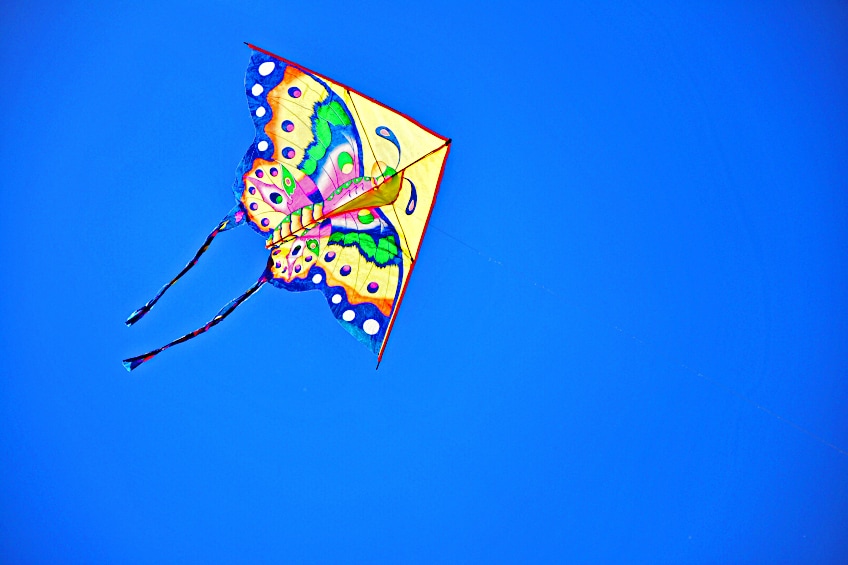
Studies will, however, try to group people according to things they like. For example, those of us who prefer darker colors are more “aggressive” or “hostile”. This has not been proven, but we tend to allow these psychological studies to play on our minds.
It will have you thinking about why you actually like a particular color, and the type of person you are according to that color.

As may we know, liking the color blue means we could be associated with a more peaceful way of life. Whereas, if, for example, you preferred the color purple, you would be known to be a more artistic and unique person. Historically the rarity of pigments to produce the color purple made it a royal color that remains linked to power and nobility to this day.
Color Names
There are many colors we have not discovered yet, but because the shades of color we do know about have such unique color names, parents often use them to name their children. There are more colors in the RGB system than we can count, so why not have fun with these cool and rare color names?
Cool Color Names
There is a wide variety of unique colors that have been discovered. Some of these are such unique and cool color names that we have used them to name our babies. Gone are the days when we would give our children regular names or names that have been in the family for generations. Society has changed so many things for us.
Some of these cool color names would include the following.

Azure
This is a medieval name for a valuable stone called lapis lazuli. This particular shade of blue can remind you of the clear sky. It was used to create an outstanding blue pigment for painting. The color has been known to symbolize responsibility and trust.
| Shade | Hex Color Code | RGB Value | CMYK Value (%) | Color |
| Azure | #0080ff | 0, 128, 255 | 80, 50, 0, 0 |
Indigo
This could be used for both males and females. This color was inspired by a deep blue-purple dye. Indigo is connected to spirituality and can be quite mysterious in its symbolism. It is also the color of justice, dignity, and even creativity.
| Shade | Hex Color Code | RGB Value | CMYK Value (%) | Color |
| Indigo | #3f0fb7 | 63, 15, 183 | 80, 80, 0, 0 |
Sapphire
This name comes from the word saphirus in Latin and the word sapheiros in Greek. The name is often associated with a gemstone that is associated with royalty.
The gemstone can be used to draw in blessings and abundance.
| Shade | Hex Color Code | RGB Value | CMYK Value (%) | Color |
| Sapphire | #0f52ba | 15, 82, 186 | 92, 56, 0, 27 |
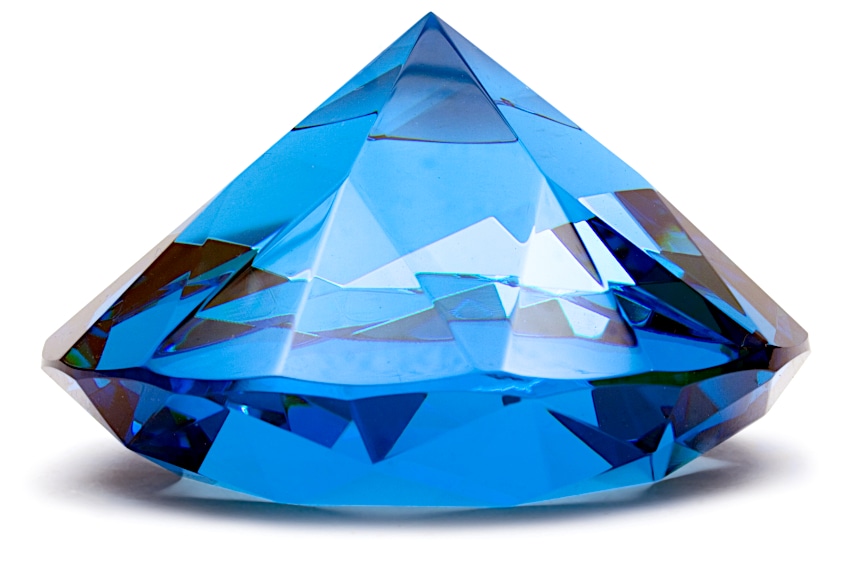
Cerise
Cerise is a shade of red, it resembles the color of cherries. This is a French word for cherry, it was given to someone who would grow cherries. The name Cerise rings of softness and is often used in women’s clothing and makeup.
| Shade | Hex Color Code | RGB Value | CMYK Value (%) | Color |
| Cerise | #de3163 | 222, 49, 99 | 0, 78, 55, 13 |
Garnet
Garnet, which is one of the red colors, is also the January birthstone. It can signify protection, trust, and friendship. The name comes from the French word for pomegranate.
Pieces of garnet are made from small red crystals that come from within a stone.
| Shade | Hex Color Code | RGB Value | CMYK Value (%) | Color |
| Garnet | #733635 | 115, 54, 53 | 0, 53, 54, 55 |
Scarlet
The color scarlet can represent passion, courage, joy, force, and even heat. It is of French origin, before becoming a more popular name, scarlet was an occupational name given to merchants of fine cloth.
| Shade | Hex Color Code | RGB Value | CMYK Value (%) | Color |
| Scarlet | #ff2400 | 255, 36, 0 | 0, 86, 100, 0 |
Amethyst
Amethyst is purple in appearance and is February’s birthstone. Amethyst is a name given to a purple gemstone that is used to promote spiritual health, inner peace, healing, stress relief, and even meditation.
| Shade | Hex Color Code | RGB Value | CMYK Value (%) | Color |
| Amethyst | #9966cc | 153, 102, 204 | 25, 50, 0, 20 |
Hyacinth
Hyacinths have been used to represent royalty and spirituality. It is also a flower name and is a shade of purple. This can be used as a unisex name and is of Greek origin meaning precious stone, blue larkspur.
| Shade | Hex Color Code | RGB Value | CMYK Value (%) | Color |
| Hyacinth | #936ca7 | 147, 108, 167 | 12, 25, 0, 35 |
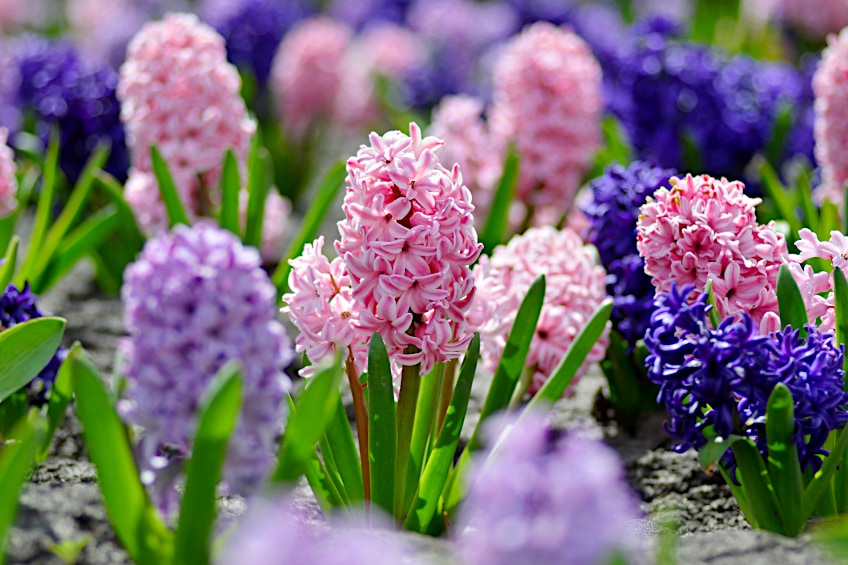
Mauve
The color mauve can symbolize youth and femininity. It can also be used as a girl’s name, and is of French origin, meaning violet-colored. This color can bring forth feelings of purity.
It is pronounced as “May-v”.
| Shade | Hex Color Code | RGB Value | CMYK Value (%) | Color |
| Mauve | #e0b0ff | 224, 176, 255 | 12, 31, 0, 0 |
Auburn
Auburn is often referred to as a hair color. It has also been used as both girls’ and boys names. It is of English origin and means “moderate or reddish brown”. Auburn appears more orange in color, and gives off the feeling of autumn.
| Shade | Hex Color Code | RGB Value | CMYK Value (%) | Color |
| Auburn | #a52a2a | 165, 42, 42 | 0, 74.55, 74.55, 35.29 |
Ginger
When we hear the word “ginger”, we often think of someone with reddish hair, or even gingerbread cookies. The name means pure, chaste, and virginal.
Ginger is an orange shade in appearance.
| Shade | Hex Color Code | RGB Value | CMYK Value (%) | Color |
| Ginger | #b26336 | 178, 99, 54 | 0, 44, 70, 30 |

Aslan
This name originated from Turkey, and means “lion”. It is more commonly used as a boy’s name and is one of the orange shades in color. We might be familiar with this name, as it is better known as the lion from the movie The Chronicles of Narnia (2005).
| Shade | Hex Color Code | RGB Value | CMYK Value (%) | Color |
| Aslan | #e1a659 | 255, 166, 89 | 0, 26, 60, 12 |
Chartreuse
This rare color name could be used as a girl’s name. It is green in appearance and could symbolize cheerfulness, acceptance, distinction, and imagination. The name “chartreuse” is of French origin and is often connected with a pale green liqueur that is made of brandy and aromatic herbs.
| Shade | Hex Color Code | RGB Value | CMYK Value (%) | Color |
| Chartreuse | #dfff00 | 223, 255, 0 | 10, 0, 70, 0 |
Rare Color Names
You probably think you’ve learned or heard about a lot of colors already, but there are way too many colors for us to even remember. We could easily mistake those colors for a more common hue that we are already familiar with. There are some rare color names on the RGB chart that we have probably not heard of yet. Let’s find out!
Amaranth
This is made up of a red-pink color, the idea came from the color of the flowers on the amaranth plant. The name could have come from the Greek word amarantos, which translates to a mythical, everlasting flower.
| Shade | Hex Color Code | RGB Value | CMYK Value (%) | Color |
| Amaranth | #e52b50 | 229, 43, 80 | 0, 81, 65, 10 |
Falu
The name comes from Sweden, where you will more likely find barns and wooden cottages painted in this color. This is a deep red color.
This deep red color is often still used in the countryside.
| Shade | Hex Color Code | RGB Value | CMYK Value (%) | Color |
| Falu | #801818 | 128, 24, 24 | 0, 81.25, 81.25, 49.80 |
Vermillion
It is a bright orange-red shade that is believed to have originated in early China. It has often been made from the powdered mineral cinnabar. The color is used in some cultures to signify different things.
| Shade | Hex Color Code | RGB Value | CMYK Value (%) | Color |
| Vermillion | #e34234 | 227, 66, 52 | 0, 71, 77, 11 |
Sarcoline
The name literally translates to “flesh-colored”, it is of Greek origin. It comes from the brown color family and it is a combination of orange and brown.
This color has been used in a Japanese-animation character.
| Shade | Hex Color Code | RGB Value | CMYK Value (%) | Color |
| Sarcoline | #ffddaa | 255, 221, 170 | 0, 13, 33, 0 |
Eburnean
This color falls as part of the white family. It has been compared to ivory, it is known to have a yellow undertone. Eburnean means to “have construction like ivory”. The name comes from the Latin word eburneus, which translates to ivory.
| Shade | Hex Color Code | RGB Value | CMYK Value (%) | Color |
| Eburnean | #ffffee | 255, 255, 238 | 0, 0, 7, 0 |
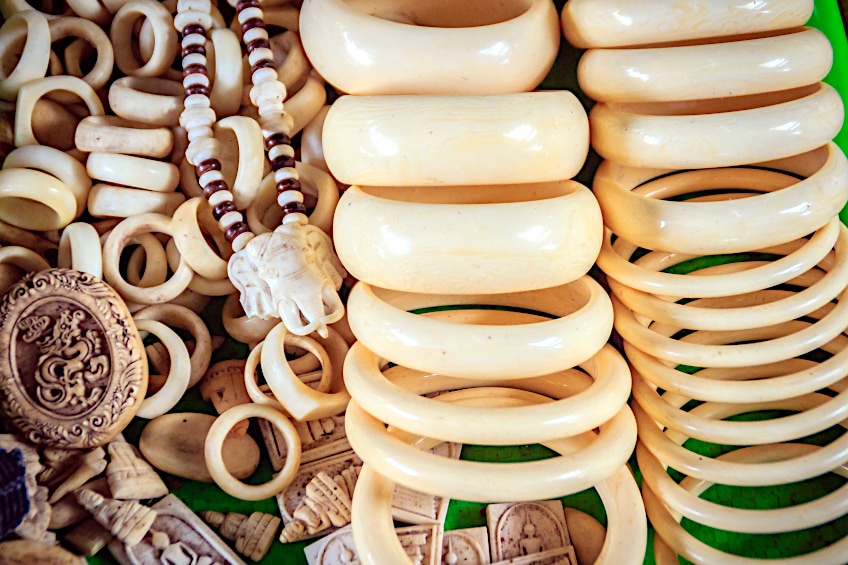
Coquelicot
The name comes from the wild corn poppy, Papaver rhoeas. This is a French name for the flower and it is known for its bright red-orange color. The first time the color was used was around 1795.
| Shade | Hex Color Code | RGB Value | CMYK Value (%) | Color |
| Coquelicot | #ff3800 | 255, 56, 0 | 0, 78, 100, 0 |
Gamboge
The term gamboge is associated with a gum resin that comes from many trees, which gives off a mustard yellow-like color.
The color has been used by Buddhist monks’ in the color of their robes.
| Shade | Hex Color Code | RGB Value | CMYK Value (%) | Color |
| Gamboge | #e49b0f | 228, 155, 15 | 0, 32, 93, 11 |
Burlywood
This color is a shade of brown, it is quite light, and is often compared to that of khakis and is even known as a sandy color. The color is often used in the home, either in furniture or to paint walls a neutral color.
| Shade | Hex Color Code | RGB Value | CMYK Value (%) | Color |
| Burlywood | #deb887 | 222, 184, 135 | 0, 17, 39, 13 |
Wenge
This color is more commonly found in our furniture, so some of us may be familiar with it. It is dark brown, with copper undertones in color. Wenge wood comes from the Millettia laurentii, which is an endangered tree you will find in central Africa.
| Shade | Hex Color Code | RGB Value | CMYK Value (%) | Color |
| Wenge | #645452 | 100, 84, 82 | 0, 16, 18, 60.78 |
Aureolin
This is a bright yellow color that is often used in oil and watercolor painting. The yellow color was produced in the 1850s to actually replace gamboge.
It has sometime been called cobalt yellow.
| Shade | Hex Color Code | RGB Value | CMYK Value (%) | Color |
| Aureolin | #fdee00 | 253, 238, 0 | 0, 6, 100, 1 |
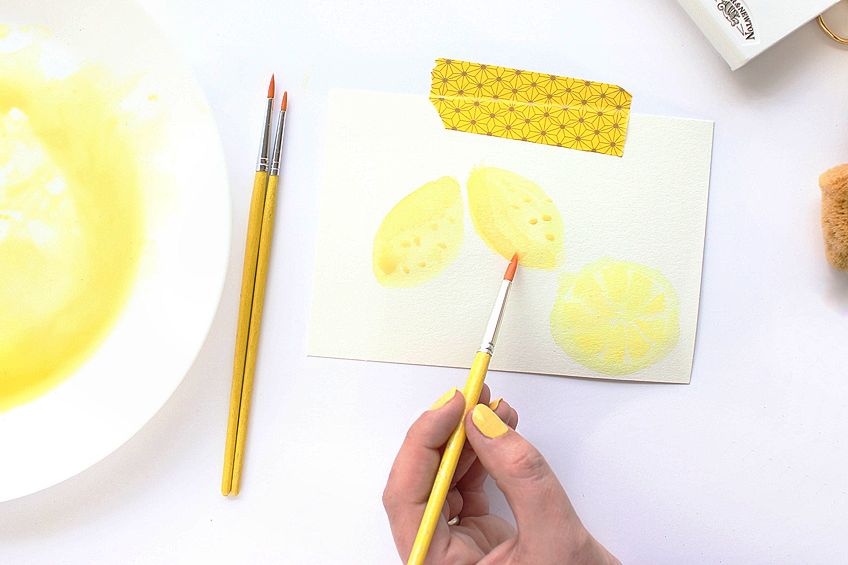
Mikado
This is a shade of bold yellow, it has been used in the national flags of Columbia and Kazakhstan. It is also the name of some dyes and colorings. The color has also been used for Lincoln automobiles.
| Shade | Hex Color Code | RGB Value | CMYK Value (%) | Color |
| Mikado | #ffc40c | 255, 196, 12 | 0, 23, 95, 0 |
Fulvous
The name fulvous comes from the word flavus in Latin, which means yellow. The color appears to be a burnt orange or a brownish-yellow.
It has often been used to describe the color of some species of birds.
| Shade | Hex Color Code | RGB Value | CMYK Value (%) | Color |
| Fulvous | #e48400 | 228, 132, 0 | 0, 42, 100, 11 |
Celadon
It is a pale green color that was reserved for expensive ceramics owned by royalty. This particular ceramic originated in China. The color has undertones of jade and gray. It is used as both a color and glaze.
| Shade | Hex Color Code | RGB Value | CMYK Value (%) | Color |
| Celadon | #ace1af | 172, 225, 175 | 24, 0, 22, 12 |
Smaragdine
This is a shade of green, it comes from a Middle English word for emerald in the 13th century. The word “smaragd” means rare. These old English, Greek, and Latin words and names of colors were inspired by that of rare jewels and some unusual bird species.
| Shade | Hex Color Code | RGB Value | CMYK Value (%) | Color |
| Smaragdine | #4a9976 | 74, 153, 118 | 52, 0, 23, 40 |
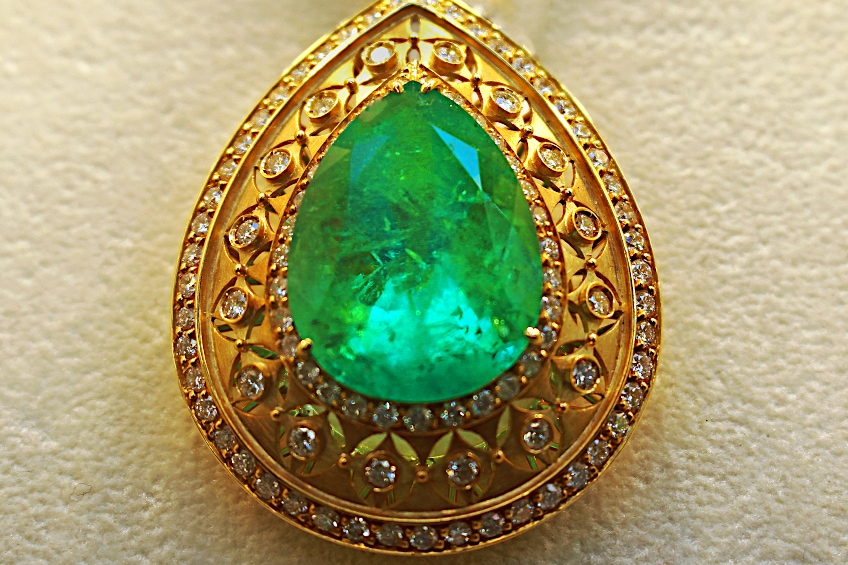
Xanadu
This color is a gray-green tone. It is sprung from the philodendron plant and can symbolize health, nature, vegetation, vitality, and resourcefulness.
This particular shade of green is not very popular.
| Shade | Hex Color Code | RGB Value | CMYK Value (%) | Color |
| Xanadu | #738678 | 115, 134, 120 | 14, 0, 10, 47 |
Glaucous
The word is believed to mean “having a powder-like or frosted appearance”. The color is a shade of blue in appearance. The name comes from the Greek word glaucus, which means “blueish-gray or green”.
| Shade | Hex Color Code | RGB Value | CMYK Value (%) | Color |
| Glaucous | #6082b6 | 96, 130, 182 | 47, 29, 0, 29 |
Skobeloff
This blueish color is similar to that of teal, and we could easily confuse the two. The color can also be known as a dark gray, and has been associated with feelings of simplicity, sincerity, glamor, and even accessibility.
| Shade | Hex Color Code | RGB Value | CMYK Value (%) | Color |
| Skobeloff | #007474 | 0, 116, 116 | 100, 0, 0, 55 |
Viridian
This color is similar to that of skobeloff as it is a blue-green pigment. The cool color name actually derived from the word viridis in Latin, which means green.
This color name is not particularly well known, but can be found in some cultural references.
| Shade | Hex Color Code | RGB Value | CMYK Value (%) | Color |
| Viridian | #40826D | 188, 215, 212 | 13, 0, 1, 16 |
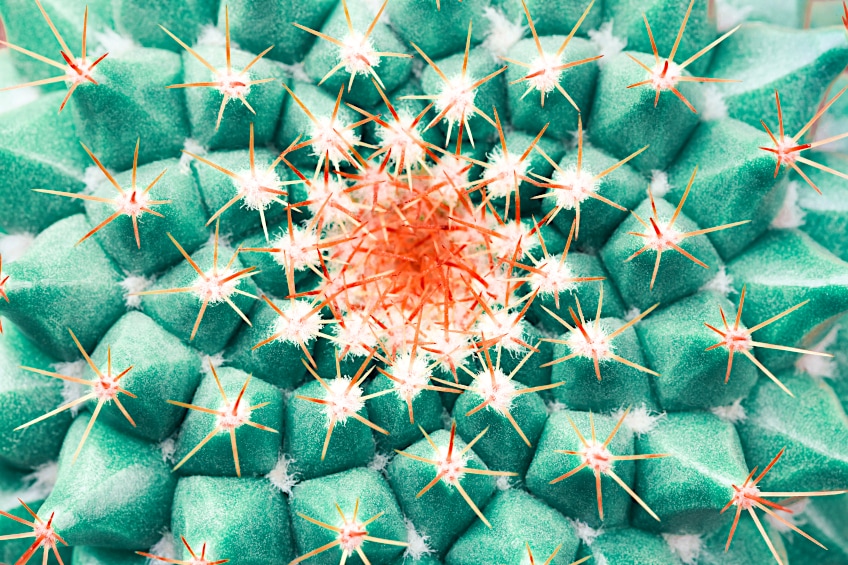
Feldgrau
This is a green-gray color that you might have seen before in a military uniform. It was the official color of the German Army’s uniform in World War I. The color was mostly used to refer to the color of the uniforms of the armies in Germany.
| Shade | Hex Color Code | RGB Value | CMYK Value (%) | Color |
| Feldgrau | #4d5d53 | 77, 93, 83 | 17, 0, 11, 64 |
Mountbatten Pink
This color could possibly be classified as pink, but it has a bit of purple in it. It can also be known as a gray-mauve color. They used this color to paint ships during World War II, this was first used by Lord Mountbatten of the British Royal Navy.
| Shade | Hex Color Code | RGB Value | CMYK Value (%) | Color |
| Mountbatten Pink | #997a8d | 153, 122, 141 | 0, 20, 8, 40 |
Phlox
This cool color name comes from the Phlox perennial plant, which can be found in North America. It is a bright shade of violet in appearance.
The name is a Greek word meaning “flame”. Phlox is better known a the flower.
| Shade | Hex Color Code | RGB Value | CMYK Value (%) | Color |
| Phlox | #df00ff | 223, 0, 255 | 13, 100, 0, 0 |
There are so many colors we still do not know about. Although most colors are just shades of the more common color, it is always interesting to find out where these rare color names originated from, and what they could possibly symbolize. If you check the RGB system, there is a possibility of 16,777,216 colors, all having their own unique color names.
Frequently Asked Questions
Why Is the Hex Color Code Used?
The color hex code is used to represent a color in RGB format by mixing the three values, red, green, and blue in a specific shade of color. Although there are other color models, the hex color code is still the most popular, and widely used representation.
Do You Get Colors That Start With a Z?
If we check the RGB chart, we will see that there are in fact some colors that start with the letter Z. On the chart, we will find zenchua (a shade of pink), zokine (a shade of green), zoboba (a shade of brown), zomp (a shade of blue), zunza (a shade of gray), zunisha (a shade of blue), zutem (a shade of yellow), and zucchini (another shade of green).
Are Colors and Shades the Same?
Color is a term we use to describe a tint, hue, tone, or shade we are able to see. When we use the word hue, we are referring to the origin of a color we can see. Shade is the combination of true colors, to which we would add black. Shade is often associated with darkness, hence why black is added to darken the color.
Does Black Exist in Nature?
The color black is not always the easiest to find in nature. If you are willing to look, you may find the color black in certain animals, plants, or even mineral areas. You are more likely to find black in animals, insects, and depending on where you are looking, a plant or flower.
Larissa Meyer is a 32-year-old mother from Michigan and creative spirit since childhood. Her passion for painting and drawing has led her to an education as an illustrator and a career as a freelance graphic designer. She has a Bachelor of Fine Arts in Illustration and a degree in Graphic Design. Larissa is a talented artist who is able to master a wide range of styles and techniques to bring her artistic vision to life. Her greatest passion is currently fluid painting and epoxy resin art. Larissa’s love for art and her knowledge and experience in illustration make her the perfect Creative Director for our fluid-painting.com team. She is the creative head of our team and shares her passion and knowledge with our community through articles and tutorials.
As a mother of a 2-year-old daughter, Larissa also understands the importance of fostering creativity in early childhood. She uses her experience and knowledge to help other parents inspire their children and develop their artistic skills as well.
Learn more about Larissa Meyer and about us.
